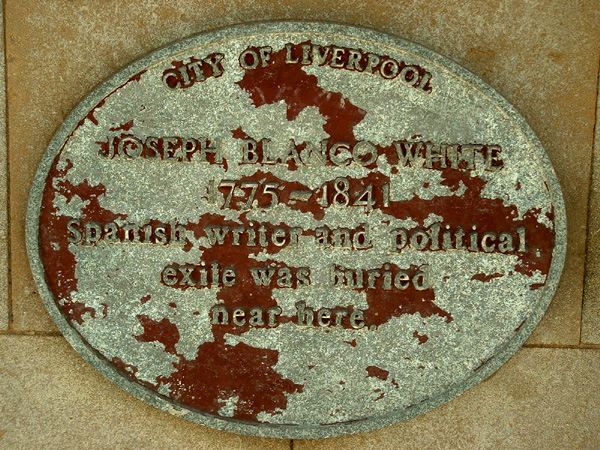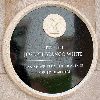
Picture donated by Jonathan P. Neill

View More Pictures:
 (1) |
 (2) |
 (3) |
 (4) |
 (5) |
See a Memorial and a Painting of Blanco White
Blanco White
|
Revered Jose Maria Blanco White was born in Seville in a
comfortable home, July 11th 1775, and died, miserably in Liverpool, May 20th 1841. Joseph was ordained a Catholic priest in 1799 and quickly rose to the higher ranks of the church as his great intelligence was recognised. He became a royal chaplain, but had grave doubts about the strong influence of the Church on Spanish society and was disillusioned by the government after the Napoleonic invasion of Spain in 1808. He became very friendly with Lord Holland, and as he was fluent in English, he decided to move to England, setting off in one of his father's boats. In 1812, he attended a service at St James' in Piccadilly, were he found
himself profoundly moved for the first time to pray. He then decided to
apply for membership of the Church of England. In 1812 he took Anglican
orders, after studying in Oxford, where he was welcomed by members of
the 'Oxford Movement', especially John Henry Newman, later cardinal. In
1832, he was invited to join Archbishop Whateley in Dublin as a tutor to
his children. Still being disturbed by doubts, Joseph read about the
Unitarian faith, and decided to move to Liverpool, where it was most
active. He attended both chapels in Paradise Street. and Renshaw Street.
He had discovered that a son had been born in 1812 to a Spanish women,
with whom he had had a liaison, when she died, he brought the boy to
England to be educated. The son joined the English army and often
visited his father, who was unable to purchase a commission for him when
his health deteriorated. For more information about Blanco White see: The University of Liverpool, Blanco White Collection
|